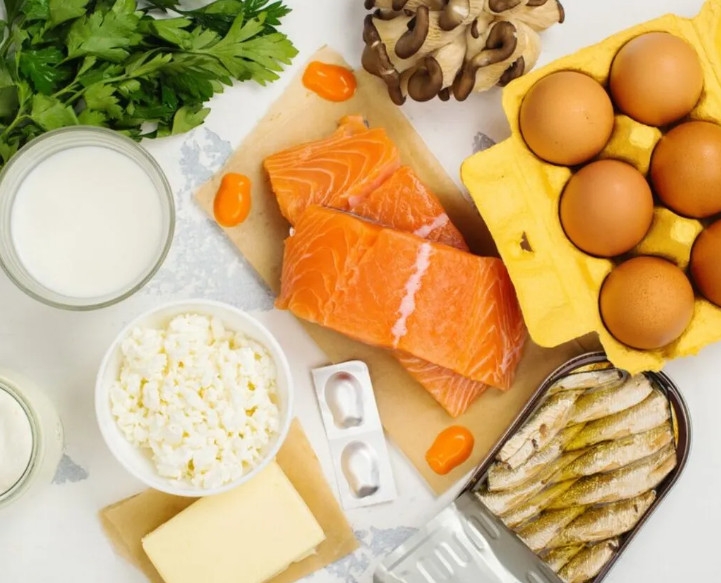Studies show that vitamin D may play a role in the production of leptin, the hormone that controls hunger, and reduce the percentage of fat that accumulates in the body. This vitamin is a fat-soluble steroid.
Vitamin D3 (cholecalciferol) is an organic compound, one of the forms of vitamin D, formed in skin cells under the influence of ultraviolet rays and absorbed from food, functions as a prohormone, turning into calciferol. Cholecalciferol is able to accumulate in the hypodermis (subcutaneous fat) and be consumed gradually, as needed.
The richest sources of vitamin D are egg yolk, oily fish and liver. However, the metabolic processing and end result of absorption of this vitamin varies greatly from person to person, resulting in often not enough for the needs of the body.
How to Get Vitamin D Naturally
20 minutes of sun exposure daily, especially around 12:00. Vertically incident sunlight helps the synthesis of vitamin D and, accordingly, the good functioning of the thyroid gland and metabolism in general.
In winter, due to lack of sunlight, many people are deficient in this vitamin, which leads, among other things, to weight gain.. However, living in a country with 9 months of summer a year gives us the opportunity to keep our vitamin D levels at a normal level. When combined with a proper diet, which can sometimes include an appropriate supplement (Vitamin D Pharmaceutical), you can keep your metabolic hormones high as well as your weight.
Foods rich in vitamin D:
1. Salmon
Wild salmon contains about 988 IU of vitamin D per serving, while farmed salmon contains an average of 250 IU. This is 165% and 42% of the daily requirement, respectively.
2. Herring and sardines
Herring contains 1628 IU of vitamin D per 100-gram serving. Herring, sardines, and other oily fish like mackerel are also good sources.
3. Canned tuna
Canned tuna contains 236 IU of vitamin D per serving. Choose canned “tuna in its own juice” (not in oil!) and eat 170 grams or less per week to avoid methylmercury buildup.
4. Oysters
Oysters are nutrient-dense and provide 53% of the daily value of vitamin D. They also contain more vitamin B12, copper and zinc than regular multivitamin preparations.
5. Shrimp
Shrimp provides 152 IU of vitamin D per serving and is also very low in fat. They contain cholesterol, but this is not a cause for concern.
6. Egg yolks
Free-range eggs contain only about 30 IU of vitamin D per yolk. However, eggs from chickens raised outdoors or fed vitamin D fortified foods contain much more.
7. Mushrooms
Fungi can synthesize vitamin D2 when exposed to UV radiation. Only mushrooms grown wild or UV-treated are good sources of vitamin D.
However, it is worth remembering that natural sources of vitamin D are limited. Take supplements (after consulting your doctor), especially if you are a vegetarian or don’t like fish.







More Stories
Vaccine to combat antibiotic resistance
Oral health: increased risk of cancer
Avian influenza virus found in cow's milk